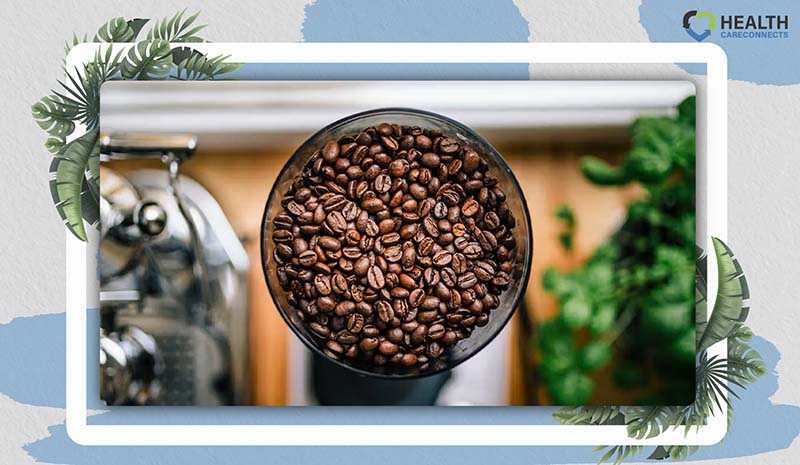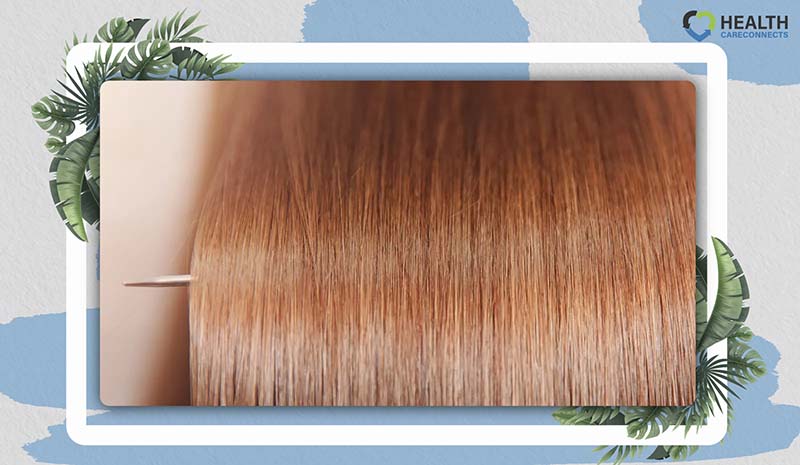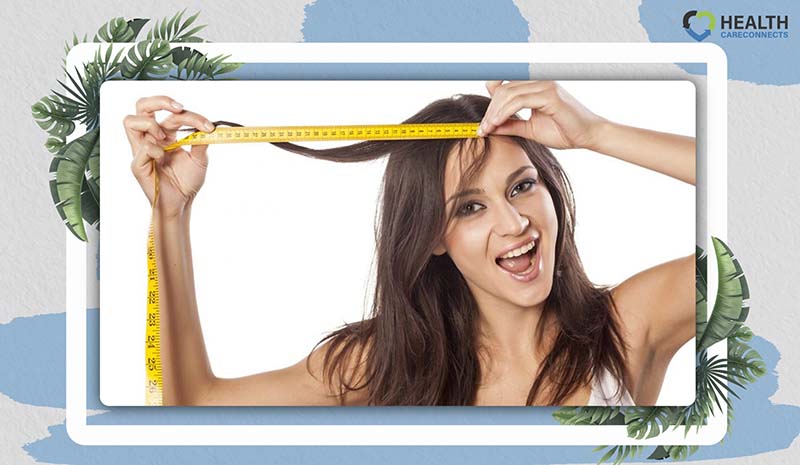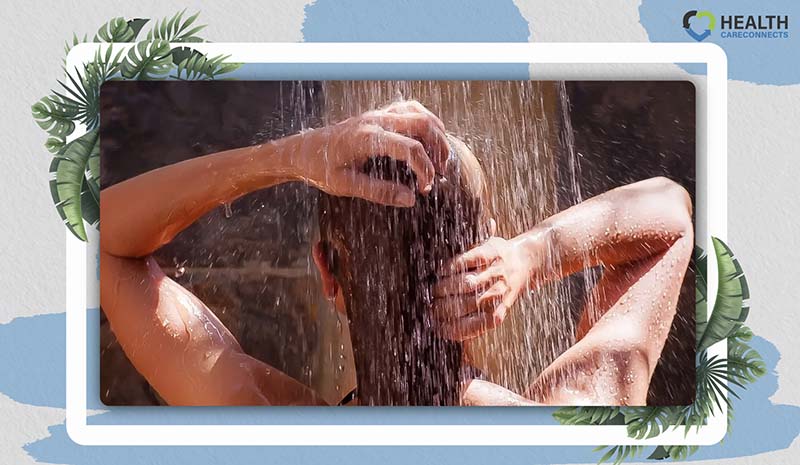Coffee is a familiar presence in our daily lives, whether it’s in your own cup or in the hands of others during your commute. You might be curious about the other benefits of this popular beverage beyond its energy-boosting properties.
If you struggle with brittle, frizzy, dry hair or hair loss, you might wonder, “Is coffee good for your hair?” The answer is yes. Discover the benefits of coffee for your hair with Health Connect and learn how it can transform your hair’s appearance.
Is There Any Evidence That Coffee Is Good for Your Hair?
The benefits of caffeine for hair are supported by scientific research. A landmark study in 2007 demonstrated that caffeine could stimulate hair follicles, promoting hair growth. The study also found that caffeine could counteract the adverse effects of testosterone on hair growth. This posed a promise for treating hereditary hair loss.
Further research in 2014 claimed that caffeine could enhance hair shaft elongation and extend the anagen phase of hair growth in both men and women. Another study in 2018 discovered that a caffeine-based topical liquid was nearly as effective as a 5% minoxidil solution in treating male hair loss.
If you’re concerned about hair loss, caffeine may be an effective solution. It’s not just a myth but a scientifically validated method for improving your hair’s health.

4 Advantages of Coffee for Hair
Coffee Softens Hair
If you’re struggling with frizzy hair, or experiencing dull, brittle, dry, and lifeless hair, coffee can be an excellent quick solution. Rinsing your hair with coffee can enhance its shine due to the antioxidants present in coffee.
This also increases blood circulation to the scalp. The process helps retain the natural moisture in your hair, making it appear less brittle, dry, and damaged.
Coffee Diminishes Gray Hair
Looking for a natural way to reduce gray hair? A coffee rinse can serve as an effective, temporary hair dye. The dark color of coffee can stain the hair, leaving a tint that covers gray strands. For best results, use a robust coffee like espresso.
This method works particularly well for individuals with naturally brown hair, as the coffee color blends seamlessly with their natural shade, concealing grays without a trace.

Coffee Enhances Natural Shine
Coffee is not just a caffeine source; it’s also rich in antioxidants like flavonoids, which protect your hair from free radicals and oxidative stress.
These antioxidants strengthen hair follicles, making your hair appear shinier. Unlike synthetic ingredients, coffee helps retain the hair’s natural oils, promoting moisture retention and a natural sheen.

Coffee Stimulates Hair Growth
Hair loss is a common issue as we age, affecting both men and women. Applying coffee to your hair and scalp can help prevent hair loss and promote regrowth. A 2007 study found that caffeine blocks the effects of the hormone dihydrotestosterone (DHT) in hair follicles, stimulating hair shaft elongation and resulting in longer, thicker hair roots.
Caffeine also prolongs the anagen phase, the active growth stage of hair. As a stimulant, caffeine increases blood circulation to hair follicles. This results in faster, stronger hair growth and fuller, thicker hair.

How to Use Coffee for Hair Growth
Beyond your daily cup, there are several ways to incorporate coffee into your hair care routine. Whether it’s a conditioning hair mask or a shampoo rinse, coffee is an easily accessible ingredient. A popular method is the coffee rinse, which can help stop hair loss, dye your hair, or improve texture.
What You’ll Need:
- 2–4 cups of brewed, completely cooled coffee
- Spray or applicator bottle
- Plastic shower cap
Instructions:
- Brew 2 to 4 cups of coffee, depending on your hair length. Let it cool completely, then pour the coffee into a spray or applicator bottle.
- Wash and condition your hair as usual. While your hair is still wet, spray or apply the brewed coffee, ensuring your strands are thoroughly saturated.
- Massage the coffee into your hair and scalp for a few minutes. Cover with a shower cap and let it sit for about 20 minutes.
- For extra moisture, mix your favorite leave-in conditioner with the brewed coffee before applying.
- After 20 minutes, rinse the coffee from your hair with cold or lukewarm water, then pat dry.
Note: For dyeing your hair, you may need to repeat the rinse to achieve the desired color.

Alternative Method:
Using coffee-infused cosmetic products like shampoos, conditioners, masks, or treatments is a more convenient option. These products are widely available and are great for those who are too busy to make a coffee rinse but still want the benefits.
Possible Side Effects of Applying Coffee to Hair
When incorporating coffee into your hair care routine, consider the following:
Hair Staining
If you have light-colored hair, be cautious as coffee’s natural pigments can temporarily stain light shades. Opt for carefully formulated caffeine-infused hair products to avoid unwanted tints.
Excessive Caffeine Consumption
While topical caffeine works wonders, consuming too much coffee for hair benefits can lead to health issues. These include increased heart rate, nervousness, digestive problems, and sleep disturbances. Avoid drinking excessive amounts of coffee.
Dryness and Brittle Hair
Coffee can have a drying effect on hair. Using DIY coffee treatments too frequently can lead to dryness, brittleness, or fragile hair.
Key Points to Consider Before Using Coffee on Hair
- Cool Coffee: Always let the coffee cool completely before transferring it to a spray bottle and applying it to your hair. Never apply hot coffee to avoid burning your scalp.
- Use Unflavored Coffee: For homemade masks, use unflavored coffee to avoid added sugars that reduce its potency.
- Allergic Reactions: If you experience any allergic reactions from homemade coffee treatments or store-bought coffee products, discontinue use immediately and seek professional medical advice.
Conclusion
In short, coffee is an easy-to-find, science-backed ingredient that can help your hair regrow, become softer and shinier, and even cover pesky grays.
Is coffee good for your hair? Yes, it comes with a lot of benefits and it’s easy to use. You can make a coffee rinse at home or use haircare products containing coffee. Just remember to use coffee powder and ensure the coffee is completely cool before application. If you experience any allergic reactions, discontinue use immediately.
Thinking of using that powder from your next coffee pot for your hair? That might be a good idea, remember to follow our instructions to avoid unnecessary negative effects. Let us know your results in the comments below.
For those seeking more information and honest product reviews, I recommend visiting HealthCareConnect.

Dr. Joyce Slater: Your Guide to Informed Health Choices
Dr. Joyce Slater shines as a distinguished expert in the field of nutrition and public health. Contributing her vast expertise to HealthConnectbc, she embodies a deep-seated passion for enhancing public well-being. As a respected figure in her field. Dr. Slater’s academic journey and professional achievements are nothing short of inspirational.
Holding a significant position as a researcher and educator, Dr. Slater has delved deeply into the intricacies of food literacy and nutritional science. Her work, prominently featured in numerous esteemed scientific publications, underscores her dedication to expanding our understanding of food’s role in health and society.
At the heart of Dr. Slater’s professional ethos is a profound desire to positively impact individual lives through education and research. She often says, “Empowering people with the knowledge to make healthier choices is the most rewarding aspect of my work.” This principle is the cornerstone of her involvement with HealthConnectbc, where she strives to provide reliable and practical health advice.
Dr. Slater’s contributions to HealthConnectbc are multifaceted: academically, she offers insights into the complex world of nutrition and health, enhancing both public understanding and professional practices. Additionally, she is instrumental in guiding and inspiring the next generation of health professionals, thus fostering future excellence in the field.
Juggling rigorous research with her educational duties, Dr. Slater demonstrates an unwavering commitment to her profession. Her approachable nature and genuine concern transcend the confines of academia, touching the lives of everyone she interacts with. Dr. Slater looks forward to continuing her journey of discovery and education, dedicated to the ongoing improvement of public health and nutrition.
At HealthConnectbc, Dr. J. Slater is not just a contributor; she is a guiding light, dedicated to enlightening and motivating individuals towards a healthier and more informed lifestyle.
PUBLISHED ARTICLES
- Food literacy competencies: A conceptual framework for youth transitioning to adulthood (2018)
- Self-perceived eating habits and food skills of Canadians (2016)
- Challenges to acquiring and utilizing food literacy: Perceptions of young Canadian adults (2016)
- Socio-demographic and geographic analysis of overweight and obesity in Canadian adults (2009)
- Sustainable well-being: Concepts, issues, and educational practices (2014)

